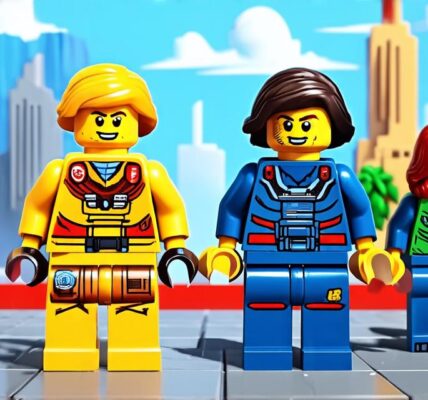1. Creativity
Creativity is the foundation of any great video game design. It involves generating new and innovative ideas, exploring different themes and concepts, and finding unique ways to bring your vision to life. As a video game designer, you will need to be able to think outside the box, challenge conventional wisdom, and push the boundaries of what is possible in the world of gaming.
One of the best examples of creativity in video game design is the work of Shigeru Miyamoto, the creator of Mario Bros., Super Mario 64, and The Legend of Zelda. Miyamoto’s innovative approach to gameplay and his ability to create memorable characters that resonate with players have made him one of the most successful video game designers in history.
To develop your creativity as a video game designer, you can try practicing brainstorming sessions, experimenting with different game mechanics and styles, and collaborating with other designers to share ideas and perspectives. You can also explore different forms of art and media to gain inspiration for your designs and find new ways to approach challenges in gaming.
2. Technical Expertise
Technical expertise is another critical skill for video game designers. It involves understanding the technical aspects of game development, such as programming languages, game engines, and 3D modeling software. As a video game designer, you will need to be able to use these tools effectively to create engaging gameplay experiences that are both fun and technically sound.
One example of a designer with exceptional technical expertise is John Carmack, the co-founder of id Software and the lead programmer for the Doom and Quake series. Carmack’s technical skills were instrumental in creating some of the most innovative and groundbreaking video games of all time.
To develop your technical expertise as a video game designer, you can take online courses or attend workshops on game development tools and techniques, practice coding and programming, and work on personal projects to build your portfolio of work. You can also seek out mentorship from experienced designers who have a strong technical background and can provide guidance on specific areas of interest.
3. Business Acumen
Business acumen is the ability to understand the business side of video game design, such as marketing, distribution, and revenue generation. As a video game designer, you will need to be able to navigate these complex areas to ensure that your games are successful in the marketplace.
One example of a designer with exceptional business acumen is Markus Persson, the creator of Minecraft. Persson’s understanding of the market and his ability to monetize his game through licensing and merchandising have made him one of the wealthiest video game designers in history.
To develop your business acumen as a video game designer, you can take courses on marketing, finance, and entrepreneurship, research industry trends and best practices, and seek out mentorship from experienced designers who have successfully navigated the business side of gaming. You can also explore different monetization strategies for your games, such as in-app purchases or subscription models, to find what works best for your target audience.
4. Communication Skills
Communication skills are essential for video game designers, who need to be able to convey their ideas clearly and effectively to team members, stakeholders, and users. This involves not only written and verbal communication but also the ability to create visual aids such as wireframes, prototypes, and presentations.
One example of a designer who excels in communication skills is Clifford Sutherland, the creator of the popular game development software Unity. Sutherland has a background in computer science and has been involved in the gaming industry since the early 1990s. He is known for his ability to communicate complex technical concepts in simple terms, making it easier for designers to understand and use his software.
To develop your communication skills as a video game designer, you can take courses on public speaking, writing, and design thinking. You can also practice active listening, ask questions, and seek feedback from others to improve your communication style. Additionally, you can participate in online communities and attend conferences and meetups to network with other designers and learn from their experiences.
5. Patience and Perseverance
Video game design is a complex and challenging field that requires a lot of patience and perseverance. Games often require multiple iterations and revisions before they are ready for release, and designers need to be able to stay focused and motivated through the entire development process.
One example of a designer who embodies patience and perseverance is Minecraft creator Markus Persson. Persson worked on Minecraft for over six years before it was released, and he continued to update and improve the game long after its initial success. His dedication and commitment to his project have made Minecraft one of the most successful games of all time.
To develop patience and perseverance as a video game designer, you can practice mindfulness and self-reflection, seek out opportunities to learn from failure, and surround yourself with supportive colleagues who share your passion for gaming. You can also set realistic goals and timelines for your projects, and break them down into smaller, manageable tasks to make the process feel more manageable.
Conclusion
Becoming a successful video game designer requires a combination of creativity, technical expertise, business acumen, communication skills, patience, and perseverance. By developing these skills through practice, education, and personal growth, you can position yourself for success in the world of gaming and create memorable experiences that will entertain and inspire players for generations to come. Whether you are just starting out or a seasoned professional, there is always something new to learn and explore in this dynamic and ever-evolving field.





